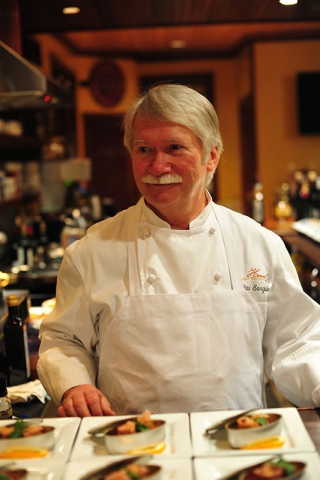
The End is Just the Beginning
30 April 2019A culinary educator’s summer project: How to collectively face challenges head on and create outcomes that demonstrate education’s importance to the success of a changing food industry.
By Paul Sorgule, MS, AAC
As we wrap up another academic year and send our graduates off into the wild world of food service, I feel it is important to summarize the past year, reflect a bit on what we do as educators and set a course for the year to come.
This has been another tumultuous year for culinary education. A year during which we all felt the pains of decreasing enrollments, downsized operations, government scrutiny, and a bit of confusion over what our programs should look like moving forward. We are caught in the whirlwind of a paradigm shift that has yet to be clearly defined. Yet we rightfully smile as another class of eager culinarians walk across the stage this month to receive their certificates and degrees. This is what we do and we should all feel pride in bringing these young cooks to the starting point of their careers.
We made it through, but not without that gnawing sense of the unknown. The food industry is changing and as a result so must we. The challenges that restaurants, food producers, growers, packagers, researchers, and distributors face must be dealt with. We must be, at some level, the inspiration for change or the creative problem solvers that help employers stay on course. How did we do in 2018/2019? Is this class of graduates really ready to face the challenges and bring about effective change? Will employers acknowledge that we lived up to the unwritten promise of well-prepared graduates?
I know we have become comfortable with the model of education that has served culinary programs, our students, and the industry well over the past few decades. But, will this continue to be an effective model in the future? Change is unnerving. It makes us quite uncomfortable and leads to self-doubt and uncertainty. But change is upon us. As educators we have an obligation to face the need for change head on and serve as a catalyst for a new approach. But first, we must take part in determining the new approach.
As we rightfully take pride in watching those graduates walk across the stage and step into the industry frying pan, we should not simply breathe out and think about enjoying some well-deserved time off. As we bid these students farewell it is time for each of us to engage in a dialogue with those stakeholders who collectively will define a path to follow from this point on. Next year’s class must and will be different, our programs must and will change, and our impact on the food business will need to be solution-based. To fail will surely lead to failure in our role as mentors, trainers, teachers, and advocates for a robust and constantly growing food industry.
Let’s take the next few months to engage with various stakeholders as we take a hard look at those unnerving questions that plague both the food business and the business of food education. Let’s work to return in August with a fresh vision that will set the table for change in how we approach our jobs. Let’s challenge ourselves to take a hard look at the following issues as an example:
- How do we (educators) help the food industry resolve the growing labor crisis?
- How do we revive the diminishing interest in a food career that drove culinary education’s growth for the past 30 years?
- Is our curriculum content appropriate for the changing food industry?
- How do we ensure our students are kitchen ready upon graduation and able to be effective members of a restaurant team?
- How can education and industry better partner to solve problems and create educational partnerships?
- How can we help resolve the cost/value dilemma associated with an expensive culinary education?
Let’s make the 2019/2020 academic year a time of renewal and rebirth. Let’s work collectively to face the challenges head on and bring about a positive outcome that will demonstrate just how important we are to the success of a vibrant and dynamically changing food industry. This is our task.
PLAN BETTER – TRAIN HARDER
Paul Sorgule, MS, AAC, president of Harvest America Ventures, a mobile restaurant incubator based in Saranac Lake, N.Y., is the former vice president of New England Culinary Institute and a former dean at Paul Smith’s College. Contact him at This email address is being protected from spambots. You need JavaScript enabled to view it..
